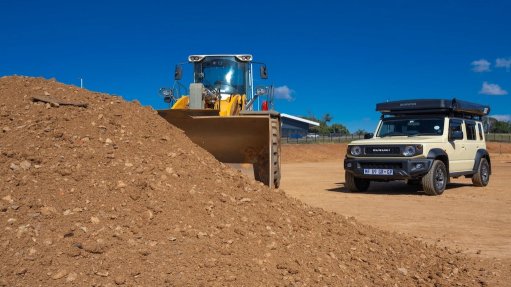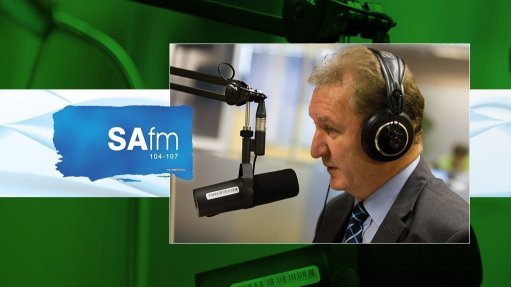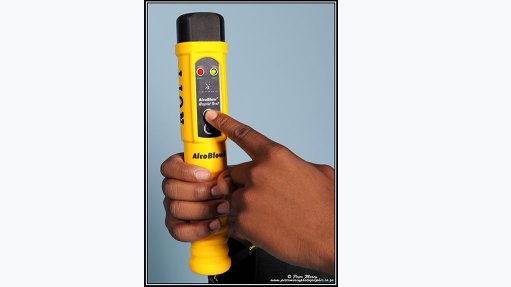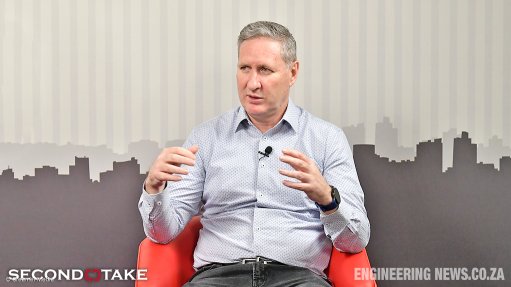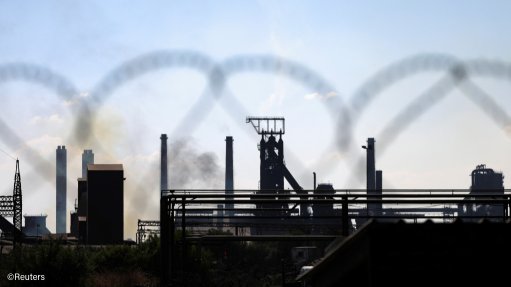Resuscitating South Africa’s ailing plumbing manufacturing industry

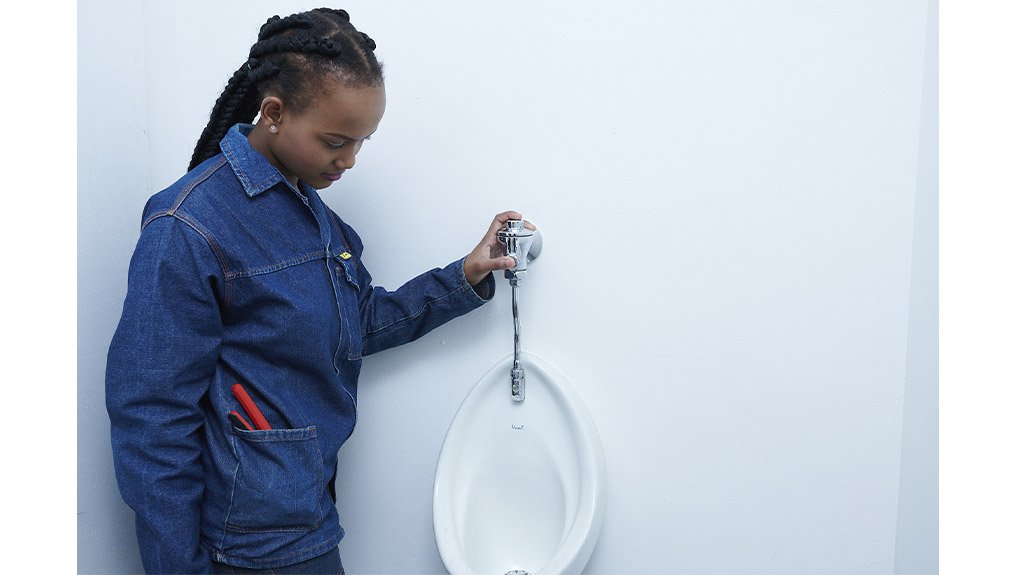
The proposed Water and Sanitation Industrialisation Master Plan aims to reinvigorate the South African plumbing supply chain
This article has been supplied.
The proposed Water and Sanitation Industrialisation Master Plan aims to arrest years of erosion of South African capacity to design and manufacture competitively priced, quality plumbing products for both the local and international markets.
Trade & Industrial Policy Strategies’ (TIPS) extensive research into the current status of the water and sanitation value chain, as well as the South African plumbing industry form the basis of this Master Plan. This includes TIPS’ most recent findings into South Africa’s ability to design, manufacture and supply competitively priced, quality water and sanitation products. The report has identified many challenges that local manufacturers of water and sanitation products face and suggests solutions to resuscitate the industry. It complements the Department of Water and Sanitation’s National Water and Sanitation Master Plan that was released in 2018. These policy documents are also intended to be used together with master plans that have already been developed for the reindustrialisation of the plastics, steel and chemicals value chains.
The findings of these reports and the proposed drafting of a Water and Sanitation Industrialisation Master Plan have been well received by the Institute of Plumbing South Africa (IOPSA). “Like so many other South African industries, the plumbing supply chain has undergone significant de-industrialisation over the years. This has resulted in major losses in semi-skilled and skilled jobs, in addition to skills development and training opportunities, exacerbating already-high unemployment in the country. The dire situation also impedes our ability to innovate in a country that needs unique solutions to help better manage our severe water and sanitation crises. As our factories have gradually closed their doors and been replaced with warehouses full of goods that are manufactured in other countries, there has also been a rise in the use of sub-standard products. This places consumers, property and municipal assets at risk, while seriously exacerbating our water and sanitation challenges. We need a robust strategy to arrest the decimation and I believe that this masterplan articulates it very well. Of course, now we need to implement its suggestions. This requires significant effort from all stakeholders in both the private and public sectors,” Brendan Reynolds, Executive Director of IOPSA, says.
The biggest threats to local manufacturers of plumbing products are cheap imports as a result of practices such as dumping, under-invoicing, mis-declaration and the general undervaluing of imported goods. It is almost impossible for local manufacturers to compete against these products, and many have, therefore, had to close their doors. For example, only two South African borehole pump manufacturers are still operating under these difficult conditions. The other 10 have closed down because they simply could not compete on this very unlevel playing field. This sector is being devastated in the same way that was done to the country’s taps, as well as copper or brass compression fittings manufacturers. South Africa no longer manufactures any of these products. They are all imported.
A robust South African Revenue Services (SARS) will help to curtail these fraudulent practices. The masterplan, therefore, suggests urgently staffing SARS with the resources and skills that it needs to investigate these cases and verify under-invoicing, mis-declaration, general undervaluing of imported goods and dumping.
There is also a need to address poor monitoring and policing of municipal procurement practices, as well as enforcement of Broad-Based Black Economic Empowerment (B-BBEE) codes of good practice. This is considering that many companies are bypassing local content requirements and supplying cheap imported designated and regular goods to municipalities. Worse still, many of these imported products are of a very poor quality. They, therefore, breakdown regularly, leading to downtime that hinders municipal service delivery, while repair and replacement costs place an additional financial burden on already-stretched municipal budgets. These practices also deprive local manufacturers of the support that they need to innovate to develop technologies that will help to improve service delivery in the municipal sector.
The masterplan also encourages retailers and wholesalers to work closely with local manufacturers to identify imported products, especially sanitary ware, as well as tubes and pipes, that could possibly be substituted with locally manufactured goods. There was an earlier call for closer collaboration between merchants and manufacturers to promote locally produced water and sanitation products. However, this is yet to take place.
Another earlier suggestion that has gone unnoticed was to closely monitor the importation of steel products. It was proposed that import rebates only be considered when security of local supply of products could be assured. Security of local supply has not been achieved and rebates on steel products are still in place, undermining local manufacture.
The TIPS report also suggests an urgent review of some of the quality standards for water and sanitation products as they may no longer be fit for purpose. There are concerns that these standards may be too high or low. It is, thus, important to determine if this is, indeed, the case; whether it is hindering the local design and manufacture of water and sanitation products; and, if so, to what extent.
Reynolds agrees with the findings of TIPS that there are gaps and “regulatory incoherence” between the National Water Act, the National Building Standards Act and the National Regulator for Compulsory Specifications Act (NRCS Act) that need to be urgently addressed. These loopholes allow the use of sub-standard imported plumbing products with impunity.
He explains, “The National Water Act has a bearing on the supply and quality of water. It, therefore, tasks municipalities with the development of by-laws to regulate water in their jurisdictions. Yet, no legislation or capacity exists for policing the regulation of water in buildings. Therefore, Building Control Officers do not inspect water installations, and their
duties are limited to wastewater and sewer disposal inside buildings. Moreover, not all of the municipalities employ Building Control Officers. Meanwhile, the National Building
Standards Act, which is housed in The Department of Trade, Industry and Competition, does not stipulate specifications for water supply to buildings, including for water installations. Yet, it prescribes regulations for sewers. There are also significant regulatory inconsistencies between the National Building Standards Act and the NRCS Act that create further ambiguities. As TIPS notes, we need to have a single regulatory framework or at least coherence between the two acts.”
As no legal requirements for the verification of plumbing compliance exist, enforcement of plumbing products and installations remains very poor. The NRCS Act is not authorised to act against non-compliant products other than geysers. Due to a lack of regulation, some retailers have even admitted to stocking sub-standard imported products for their survival. This is despite the risk that this practice poses to consumers who cannot verify whether products are of a suitable quality.
The masterplan also draws attention to insufficient product testing and certification capacity in the country. This has resulted in delays in testing and certification that have prevented manufacturers from taking their products to market timeously which impedes their ability to compete. Many companies have even closed down because they have not been able to attain the necessary certifications within a reasonable timeframe. It is compulsory for products to comply with some standards. Compliance with a single standard usually consists of many test methods at laboratories that are accredited to undertake them. However, the country’s various laboratories can only offer partially accredited tests for most compulsory standards. For example, South African National Standards (SANS) 226 for metal taps consists of 12 tests. SABS is accredited for eight of these tests; ATL for seven; and OMEGA for 11. TIPS has, therefore, suggested closer collaboration between private and public sector laboratories to increase testing and certification capacity in South Africa.
It is also time-consuming and costly for manufacturers to attain accreditation from the South African National Accreditation System (SANAS) for their products. This further frustrates the efforts of local manufacturers and hampers innovation. The introduction of new and amended standards also require large capital outlays for laboratories, equipment and training of staff to test. Regulators are loathe to make this type of investment as there are insufficient manufacturers of new products in the country to justify the expense.
The high cost of attaining and maintaining SANAS accreditation also prevents many manufacturers from entering the market. There is also often a lack of understanding of the total cost involved in certifying products, especially new technology, among manufacturers.
The lengthy testing process can also be a hindrance. A typical certification process takes at least 32 days and field-testing up to 50 days.
Moreover, many water and sanitation goods and services have not been adequately designated or not at all. IOPSA and the Plumbing Industry Registration Board have committed to working with International Trade Administration Commission and the National Regulator for Compulsory Specifications to review and expand water and sanitation-related product designations.
“The challenges that local designers and manufacturers of water and sanitation products face are extensive and complex and, therefore, cannot be solved overnight. Considering the severity of our water crisis with Gauteng now also facing acute water restrictions on the back of the country’s crumbling sanitation system, we cannot delay any longer. The focus should now be on ensuring that quality water and sanitation products are being used and that we have the local capacity to supply this demand and innovate to find solutions to these challenges. At the same time, a vibrant local plumbing manufacturing industry will help to absorb the many unemployed South Africans, especially the youth. In addition to creating stable employment prospects, the manufacturing industries provide immense opportunity for skills development and training,” Reynolds concludes.
Comments
Announcements
What's On
Subscribe to improve your user experience...
Option 1 (equivalent of R125 a month):
Receive a weekly copy of Creamer Media's Engineering News & Mining Weekly magazine
(print copy for those in South Africa and e-magazine for those outside of South Africa)
Receive daily email newsletters
Access to full search results
Access archive of magazine back copies
Access to Projects in Progress
Access to ONE Research Report of your choice in PDF format
Option 2 (equivalent of R375 a month):
All benefits from Option 1
PLUS
Access to Creamer Media's Research Channel Africa for ALL Research Reports, in PDF format, on various industrial and mining sectors
including Electricity; Water; Energy Transition; Hydrogen; Roads, Rail and Ports; Coal; Gold; Platinum; Battery Metals; etc.
Already a subscriber?
Forgotten your password?
Receive weekly copy of Creamer Media's Engineering News & Mining Weekly magazine (print copy for those in South Africa and e-magazine for those outside of South Africa)
➕
Recieve daily email newsletters
➕
Access to full search results
➕
Access archive of magazine back copies
➕
Access to Projects in Progress
➕
Access to ONE Research Report of your choice in PDF format
RESEARCH CHANNEL AFRICA
R4500 (equivalent of R375 a month)
SUBSCRIBEAll benefits from Option 1
➕
Access to Creamer Media's Research Channel Africa for ALL Research Reports on various industrial and mining sectors, in PDF format, including on:
Electricity
➕
Water
➕
Energy Transition
➕
Hydrogen
➕
Roads, Rail and Ports
➕
Coal
➕
Gold
➕
Platinum
➕
Battery Metals
➕
etc.
Receive all benefits from Option 1 or Option 2 delivered to numerous people at your company
➕
Multiple User names and Passwords for simultaneous log-ins
➕
Intranet integration access to all in your organisation








